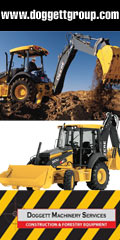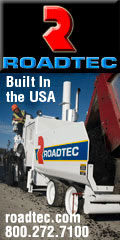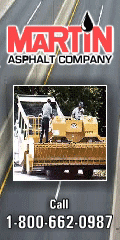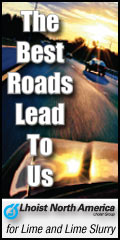| Wednesday, April 04, 2012 | ||
 |
 |
 |
| Past Issues | www.texasasphalt.org | Printer-Friendly | Subscribe | Advertise |
Seatbelts by Doug Wilcox
Maybe I am showing my age but some of us can remember when seatbelts were either non-existent or were an option in over the road vehicles and completely unheard of on mobile construction equipment. That is definitely not the situation, as we all know seatbelts are required by law for on road vehicles; but what about mobile construction equipment? OSHA states in its standard (1926.602) for the construction industry that seatbelts shall be provided for all mobile construction equipment with a rollover protection system (ROPS). The rationale for this is basically the same as for on road vehicles. That is to say, that by remaining secured using a seatbelt inside the vehicle or within the protection zone of the ROPS the operator is much less likely to incur serious harm than if unsecured. This has been and continues to be, a concept that is difficult for many field operators to believe. I suspect that there are various reasons for this:Operators get in a hurry to do their work and just forget to buckle up.
One mechanism that we use to help in our internal seatbelt compliance efforts is to use a florescent orange seatbelt. The orange color can be seen from a distance making it easier to verify that the operator is indeed wearing his/her seatbelt. Our Company has been reinforcing the concept of seatbelt use over the past several months and will soon begin to discipline employees found not using their seatbelts. As one of our managers so aptly stated "I would rather terminate an employee who is alive and well than bury an employee who we let disregard a safety practice". One last thing... an often overlooked fact regarding seatbelts is that they need to be replaced at some frequency regardless of how good the belt looks. Most construction seatbelts need to be replaced every three to five years per the manufacturer’s recommendations. Check your owner’s manual and BUCKLE UP! |
Asphalt: Smooth | Durable | Quiet | Safe





